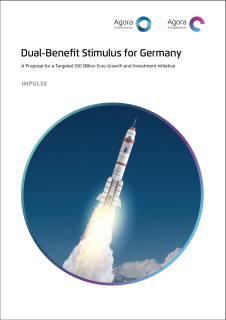
The coronavirus pandemic has upended the status quo like no other event in recent memory. It has impacted nearly every country in the world and, as of early May, has claimed more than 250,000 lives. In an effort to contain the pandemic, governments have introduced unprecedented social distancing measures, closing large sections of the economy and severely restricting the movement of people. As a result, the global economy faces what is likely the greatest crisis since the Great Depression. For the European Union, the coronavirus pandemic is the most momentous test in its 30-year history.
As if that were not enough, the next crisis is already in the offing. The threat of global warming has not grown any smaller just because the world’s attention is focused on the coronavirus pandemic; on the contrary, 2020 is shaping up to be one of Germany’s driest years on record and one of the world’s hottest ever. Scientists’ warnings about the effects of global warming are just as urgent as their warnings about the costs of waiting to contain the pandemic. The world has neither the time nor the means to handle these crises in succession. There is a need for a stimulus package that boosts economic growth and moves the economy towards climate neutrality. The investments made must address the needs of today while taking into account the long-term challenges of tomorrow. Anything less is not only unsustainable, but it will sow the seeds for the next crisis.
The report details seven key recommendations:
- Boost spending power by lowering the electricity tax (22 billion euros)
- Lead the chemical, steel, and basic materials industries on a sustainable path out of the crisis (15 billion euros)
- Lead the automotive industry and the mobility economy on a sustainable path out of the crisis (15 billion euros)
- Lead the construction industry and heating sector on a sustainable path out of the crisis (25 billion euros)
- Lead the energy sector on a sustainable path out of the crisis (eliminate roadblocks, plus 3 billion euros from the federal budget)
- Accelerate planning and improve training
- Tackle the crisis together with European partners (German contribution: 20 billion euros)
